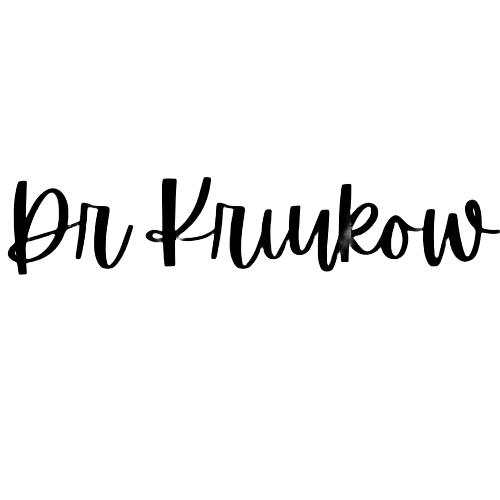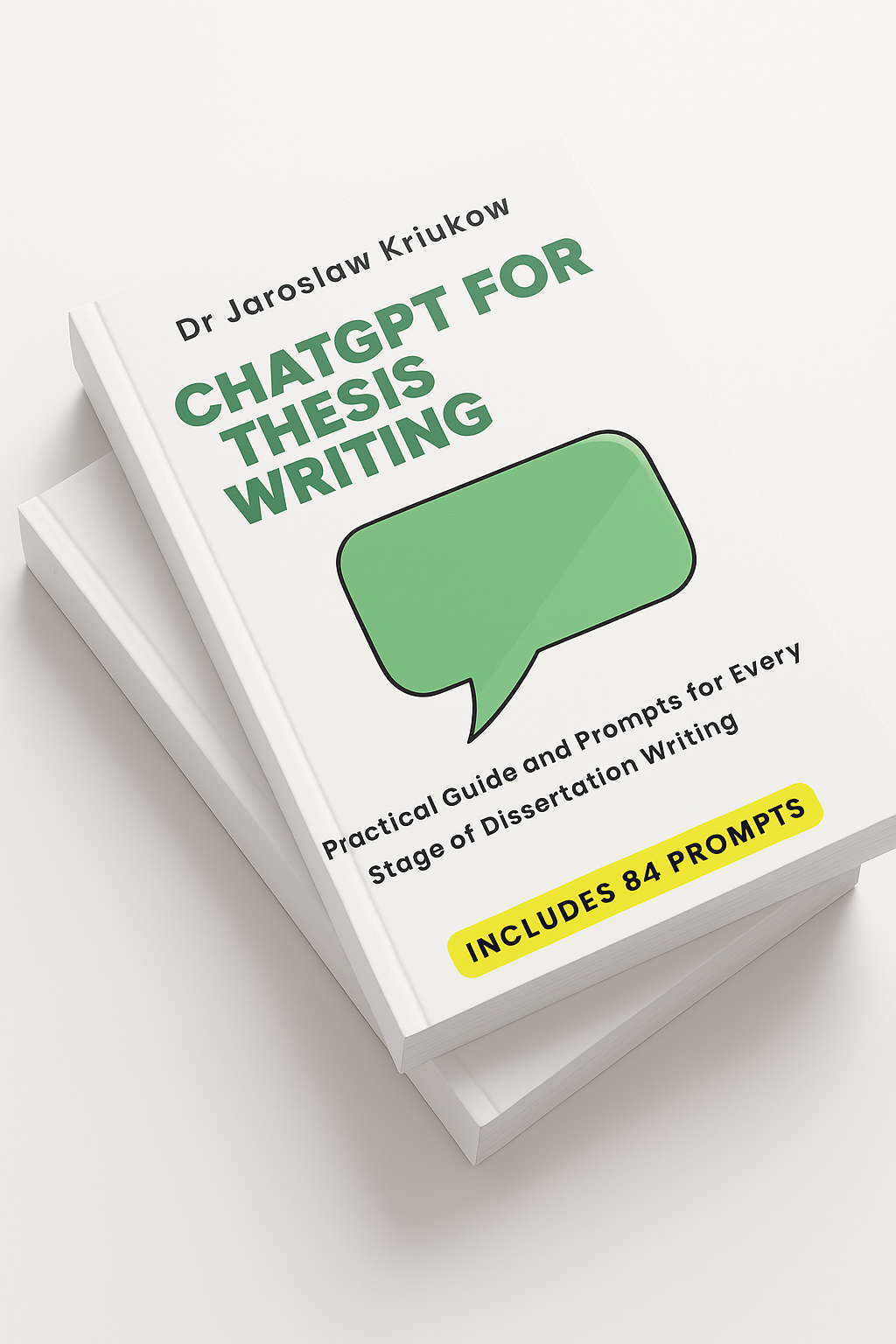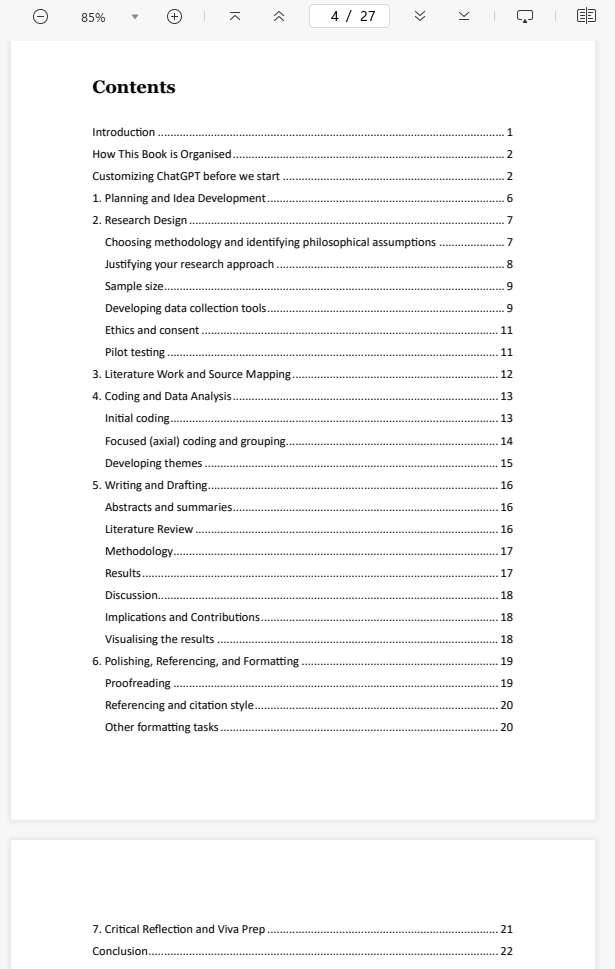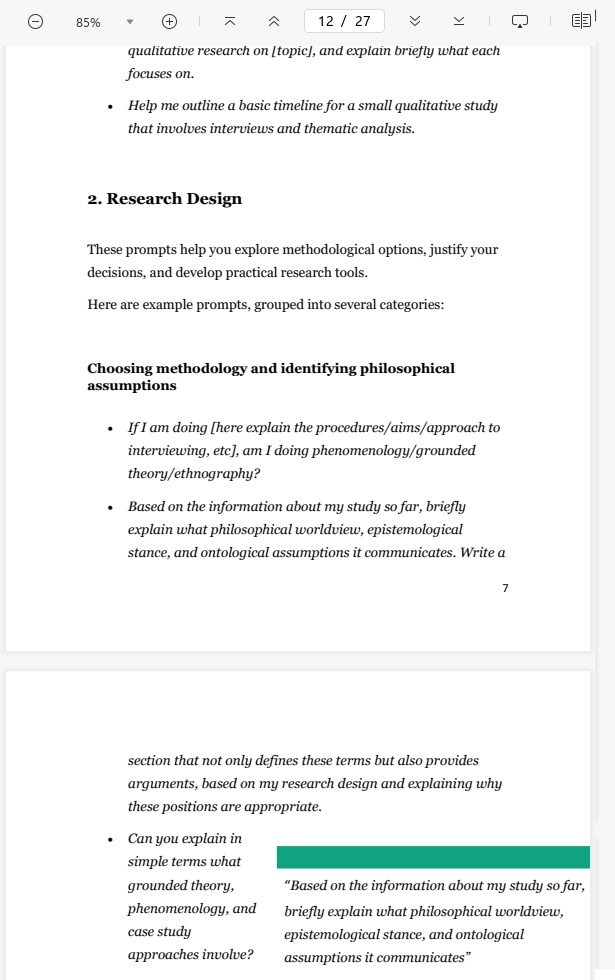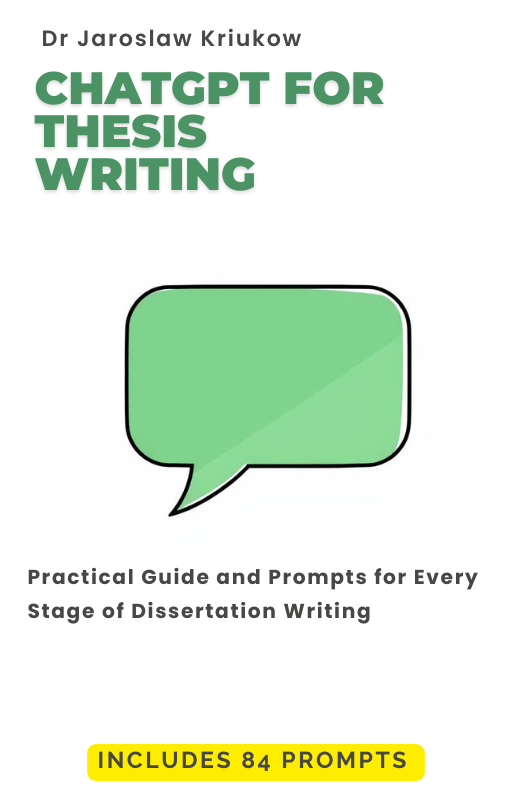ChatGPT for Thesis Writing: Practical Guide and Prompts for Every Stage of Dissertation Writing
This book is for students and researchers who want to use ChatGPT - or any other large language model like Gemini or Claude - in academic work without compromising academic integrity or originality.
Whether you're planning your study, designing interviews, analysing data, or preparing for a viva, this book walks you through each step of the dissertation process with clarity and purpose.
It begins with a short section on how to set up ChatGPT to reflect your personal writing style and reduce AI-detection risks - an increasingly relevant concern in today’s academic world. From there, it moves through the full life cycle of dissertation (or any academic paper) writing, offering useful prompts across seven core stages:
- Planning and idea development
- Research design (including theory, methodology, and tools)
- Literature work and source mapping
- Coding and data analysis
- Writing and drafting core chapters (including discussion and implications)
- Polishing, referencing, and formatting
- Preparing for the viva
What makes this eBook different is its focus on practicality. It contains 84 carefully designed prompts, grouped by function. These prompts help you test ideas, justify your methods, write academically, refine your codes and themes, and even prepare for challenging viva questions. And while the prompts are optimised for ChatGPT, they work just as well with other language models.
Example prompts shared in the book:
"Based on the information about my study so far, briefly explain what philosophical worldview, epistemological stance, and ontological assumptions it communicates. Write a section that not only defines these terms but also provides arguments, based on my research design and explaining why these positions are appropriate"
"To explore [here insert your statement of the aim], what data collection methods do you recommend?"
"I’m working with a vulnerable population. How can I minimise emotional distress and still collect meaningful data? Support your response with references"
"My research questions are: [insert]. Based on the transcripts, the research questions, and the codes you’ve just organised, come up with themes and sub-themes that will effectively help me communicate answers to these research questions."
"Review my in-text citations and make sure they match the entries in my reference list."
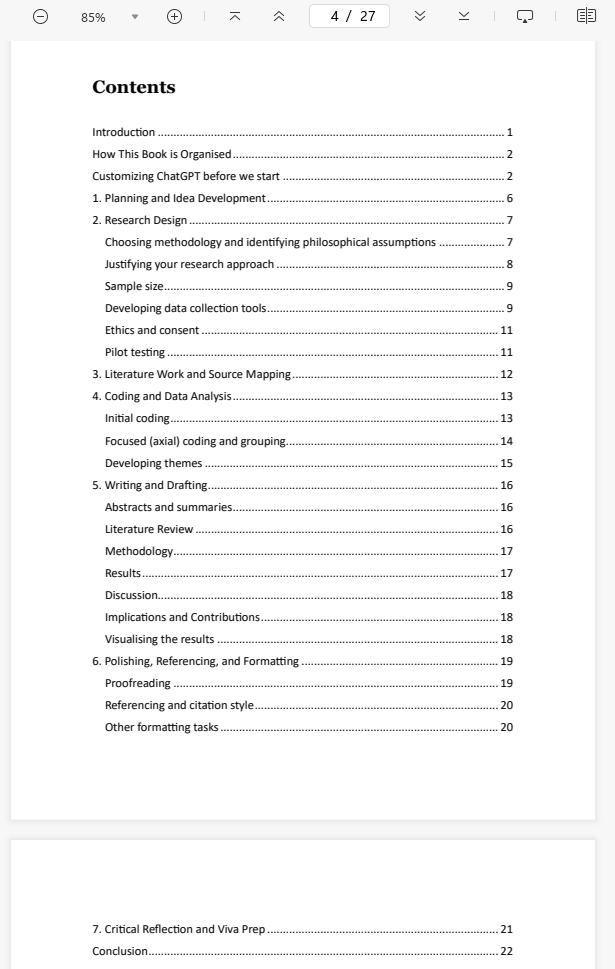
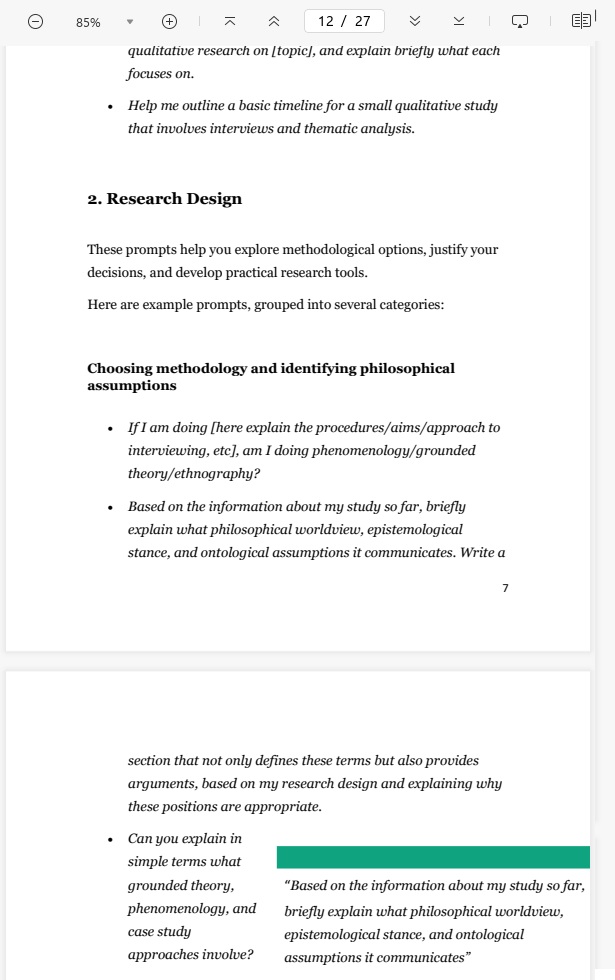
Pages: 22
